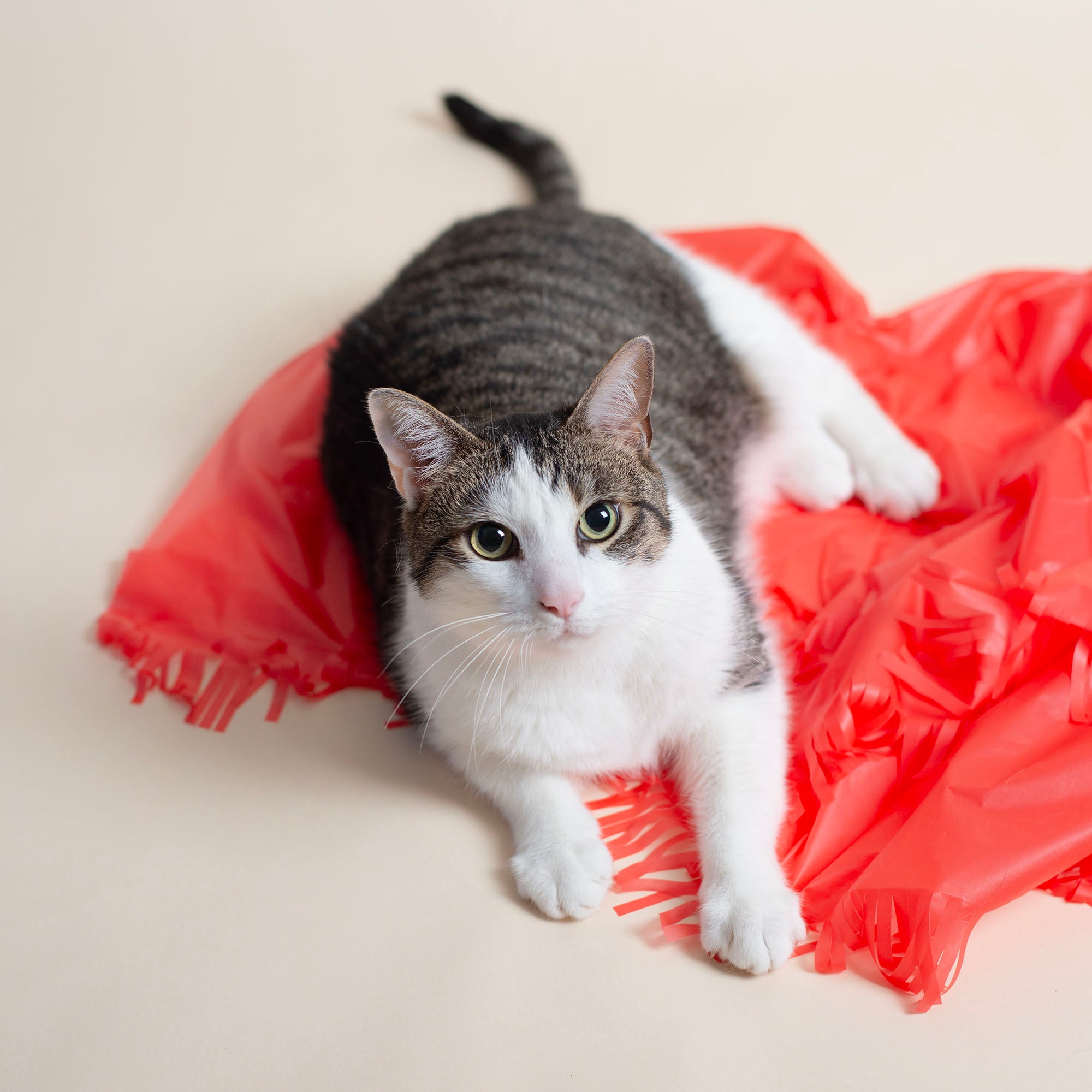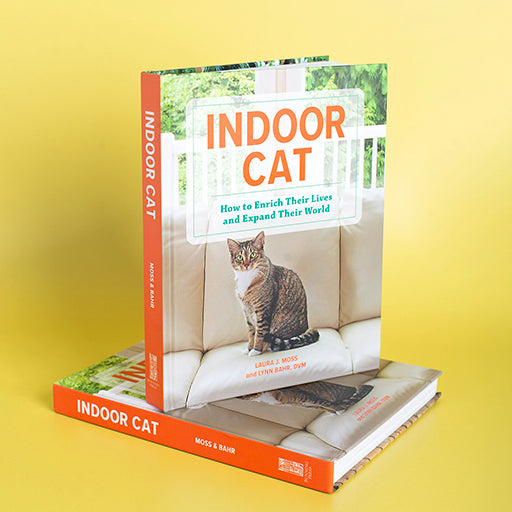5 Signs Your Cat is Feeling Lonely
Is it possible for indoor cats to feel lonely? The short answer: yes.
Although cats are widely perceived as creatures of independence and solitude, loyal cat owners and lovers understand that cats often crave attention from their humans. That little ball of fur that snuggles up close to you purring at night has a bond with you similar to that of a baby. So they may feel bored and lonely while you are away.

Cats are expressive animals and will show you how they’re feeling. If you are concerned that your cat may be feeling lonely, look for the following signs.
1. Increased Sleeping
There is no reason to be alarmed if your cat dozes throughout the day. In the wild, cats nap frequently to rest up for hunting. And this behavior carries over indoors—despite the lack of need for survival-driven hunting.
But just like for humans, boredom can spark the blues in cats, and that can lead to more naps. So if you notice your cat sleeping more than usual or reduce their level of engagement during play time, it could be a sign of loneliness.
Boredom can also cause your usually active kitty to become withdrawn or sluggish. Without you there, your home isn’t very exciting to your cat. In addition, if cats experience stress or anxiety while being alone it may prompt them to isolate themselves or ignore their owners, deepening a lack of engagement.
2. Destructive Behavior
If your cat goes to the bathroom outside of the litter box while you are out of the house, this might be another sign loneliness is creeping in. Cats often exhibit negative feelings like stress or loneliness with ‘destructive’ behavior, especially when they are under-stimulated or left alone for long periods of time.
In fact, a study from the National Library of Medicine says urinating in inappropriate places is one of the most frequently reported signs of loneliness and depression in cats.
But your cat isn’t trying to be destructive. Your ripped curtains, scratched doorframes, or shredded couches are a result of coping mechanisms for a bored and lonely Mr. Whiskers. Common places for urine elimination may include your clothes or furniture – they want you to know they’re stressed.
Just remember, if your cat is peeing outside of the litter box or otherwise turning your home into a demolition zone, it is a good idea to take them to the vet to assess possible health problems, in addition to the possibility of stress and loneliness. After all, felines need to scratch. Don’t punish the for it. Instead, get to the root of the problem.
3. Excessive Clinginess
Cat behavior caused by loneliness isn’t always negative. Sometimes your cat becomes extra affectionate. A lonely cat may even show signs of separation anxiety, such as low appetite or trying to follow you out the door.
If you work from home, your cat may sprawl across your keyboard. It seems strange that your cat would be lonely with you sitting right in front of them. But even though you’re home, you’re not paying attention to them. Clinginess is a sign they want your attention.
Set boundaries for your cat by establishing routines for play and affection. They’ll learn to look forward to the time you do spend with them, and find ways to show you love that don’t interrupt your 2 pm Zoom call (although, we wouldn't be upset if they made an appearance).

4. Excessive Self Grooming
Does your cat produce excessive hairballs or have visible bald spots? Excessive grooming that results in bald spots and vomiting can be related to stress. If you are gone for long hours during the day, loneliness is a likely stressor.
Some cats will over-groom whenever they experience physical or mental stress. If your cat is prone to excess licking, it may be a sign they are in need of more attention.
Similar to unwanted urination, it is important to have a vet determine if there are first any underlying illnesses or if it is associated with a behavioral issue.
5. Increased Vocalization
Even if your feline is a chatter box, excessive vocalization may be a demand for more attention – especially if they feel lonely or neglected.
Think of a baby crying for their mother. Cats similarly cry for their owners when they are lonely or need something from them. In fact, cats in the wild rarely meow except to communicate to their mother or babies. Excessive vocalization may be likely to occur when you leave the house, when you return home after being away for hours, at meal times, or when you’re trying to fall asleep.
Cats cry or meow loudly when calling for a companion, to have reassurance that they are not alone. Your cat may even call you from another room by meowing repeatedly if they cannot get to you.
Make Time for Your Lonely Cat
It is important to know that you are not a neglectful pet parent for leaving your fur baby at home. It is inevitable for all of us to leave our homes at some point throughout the day.
If your cat is demonstrating any of the signs of loneliness above, it is important to address the problem by creating the intention to spend more time with them and finding feline enrichment activities that can entertain them while you are away.

Ways to keep your cat active
- Environmental enrichment. You don’t have to invest in a lot of toys to make play time a fun activity. Think cardboard boxes, paper towel rolls, and paper bags—whatever your cat prefers. Check out Indoor Cat: How to Enrich Their Lives and Expand Their World for more tips on feline enrichment.
- Get them a feline friend. Young cats can get particularly lonely. Another cat may (or may not) help. If you do decide to acquire a companion cat remember to introduce the new kitty slowly. Keep in mind that many adult cats can get stressed with a new feline on their turf.
- Try food puzzles. In the wild cats are foragers and hunters. A bowl of kibble with unlimited fresh water isn’t very challenging. Make mealtimes fun with a lick mat, slow feeder, or DIY puzzle.
- Hire a pet sitter. If your cat craves true human companionship, find someone to keep them company when you’re out of town like a pet sitter or family member. Your cat will get more stimulation and you’ll rest easy knowing your cat is in good hands while left at home.
- Train your cat. Despite popular misconceptions, you can teach your cat a few tricks. You might try clicker training for an extra stimulating feline challenge.
- Create an indoor playground. Boxes, cat trees, play tunnels, and more can be combined to create an indoor wonderland for your cat. For an extra challenge, hide scented toys or treats around the house for kitty to find while you’re away.
- Help them bird watch. Cats love to watch birds and other small animals, both on your TV and through the window. Give them a nice perch to view from, and “turn on” the cat TV, literally or by opening the blinds.
Our enrichment toys are developed to keep cats happy, healthy and entertained throughout the day. For example, our Magic Carpet provides cats with limitless ways to play while refocusing destructive energy to the product instead of your furniture.
What are your favorite ways to keep your cat entertained? Let us know in the comments!









